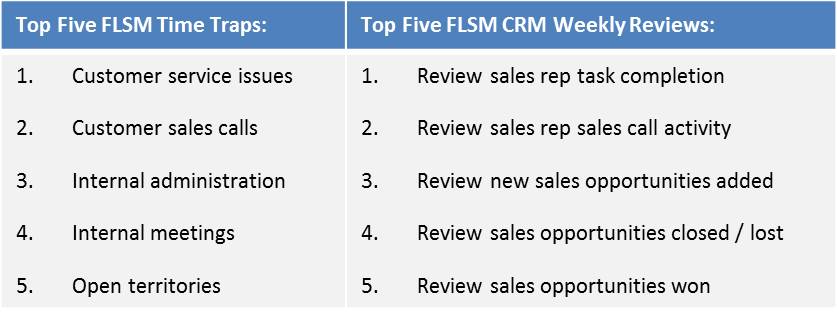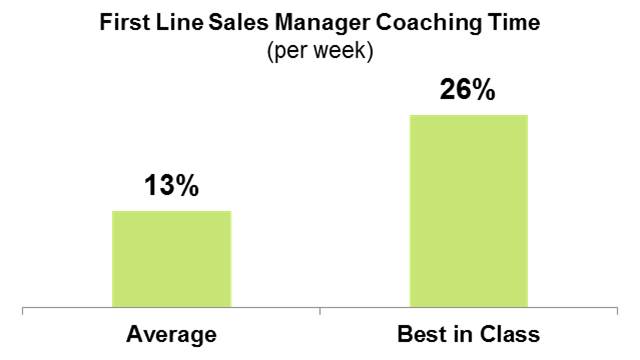Want Your CRM to Work? Keep Front-Line Sales Managers in Mind

Newsflash: CRM initiatives often fail to deliver the value promised. Within 12-24 months of a CRM launch many companies find that they have not improved their sales pipeline or forecast predictability as desired. As a result, they turn their attention to the sales reps, evaluating what levers they can use to drive greater adoption of the tool and improve data accuracy. Sales compensation, performance reviews, and even sales crediting are discussed as ways to make progress. Programs and incentives are revamped, but often with similar results. Time is lost.
Why? The Front-Line Sales Manager (FLSM) is overlooked in the design. In our experience, companies often overlook the role most directly responsible and with the greatest influence achieving this – the sales manager. Most companies design their CRM system based on a series of fact-finding sessions conducted with sales leadership and teams of high performing reps. These sessions determine what data is needed in the system while also verifying the sales process. Although the sales manager is often in the best position to ensure the sales rep’s pipeline is robust and accurate, the sales manager is often an afterthought in how he or she will use the CRM system to execute their role. There is very little discussion on what information sales managers need to conduct effective weekly one-on-ones, or effective field visits with sales reps. In fact, the CRM system is often built to ensure sales reps capture all the correct data, while the sales dashboards are created for senior leadership. The sales manager is essentially left off the radar. Despite this fact, the CRM system is launched to the sales team with detailed technical training on how to input data and access reports, all with great expectations of improving the viability and predictability of the sales pipeline and forecast.
New initiatives, like CRM improvement, require managers to manage. Sales, at its core, is an exercise in discipline, requiring a consistent process and rhythm to ensure appointments are set, follow-ups are conducted and commitments are delivered. The sales managers lead this process through their weekly one on ones with individual sales reps. The Alexander Group’s sales time database indicates that sales managers typically commit just 13% of their time per week to individual coaching, either through one on one meetings or field travel, while best practice is 26%, or double this amount. There are several reasons why this percentage is so low. To begin, sales managers often avoid these meetings because they prioritize customer issues or sales calls over management duties. They also tend to conduct the weekly meetings with high performers, but avoid low performers, or conduct non-productive meetings because they do not have a strong agenda and/or do not know what information to review.

Invest in your sales managers. Begin by recognizing the importance of their role, and expanding their degree of participation and voice in the design of sales productivity initiatives. Ensure that training budgets reflect focus on the first line manager. The recession saw training budgets severely reduced or eliminated. They are slowly coming back. How much of your sales training budget should you dedicate to your FLSM? For major initiatives like CRM, consider 20 to 25 percent.
Create a sales manager playbook for CRM. Sales manager playbooks that show managers how to connect the CRM system to their sales management cadence can dramatically improve the value companies derive from CRM, leading to improved data accuracy, pipeline visibility, and forecasting accuracy. These playbooks align your CRM system reporting with expectations for both sales reps and the sales manager, reducing time wasted and driving better discussions, improving productivity. Standard guidelines and tools for clear meeting agendas and common one-on-one reports ensure the entire team is reviewing the same data and allows you to establish performance standards across the sales team. This constant review of the same information on a weekly basis drives sales reps to ensure the data in the system is accurate prior to the meeting with the sales manager. Connecting the sales manager to the CRM system in a meaningful way helps re-establish the sales manager as the sales coach.
How are your managers doing? Have you equipped them with the right training and tools? Do you have a solid FLSM playbook to drive consistent pipeline, forecast and results? Learn more.
